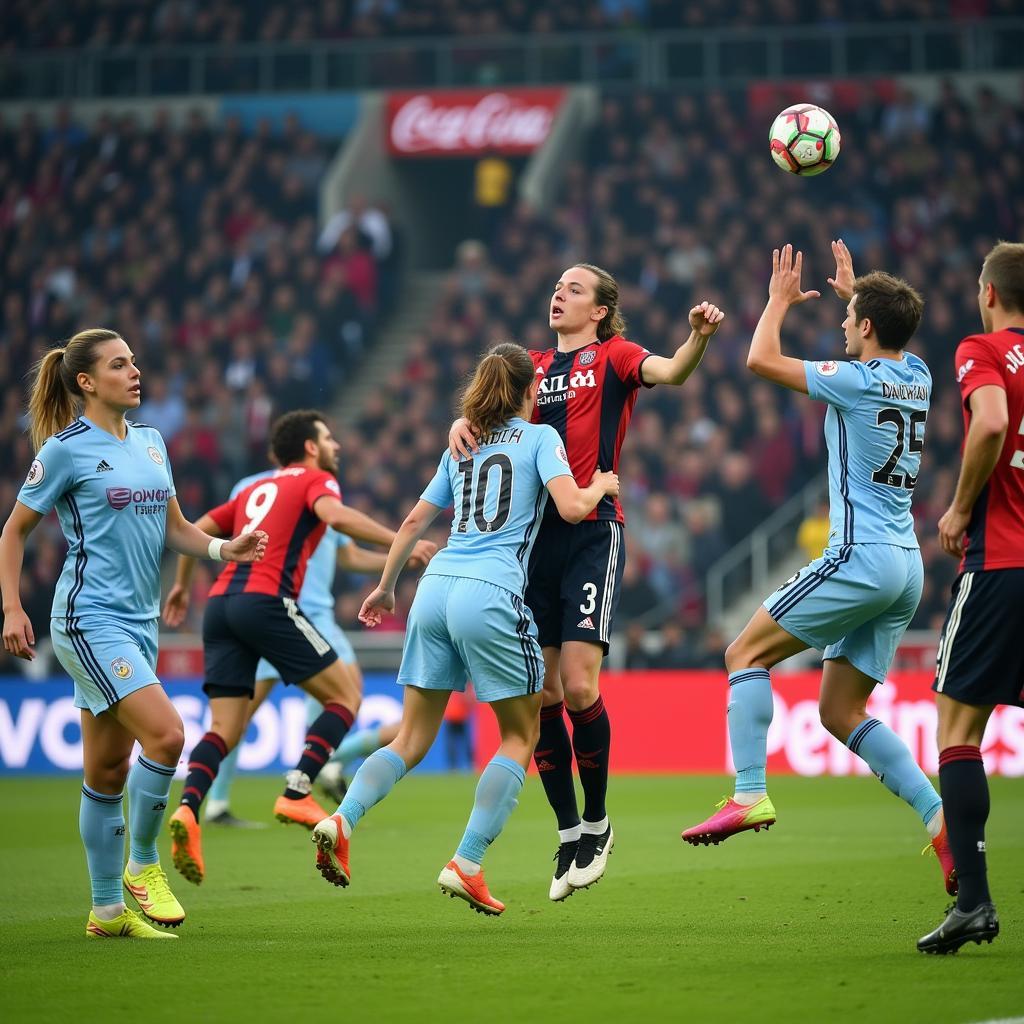Don’t Saddle a Dead Horse: When to Let Go and Move On in Football
December 1, 2024Don’t saddle a dead horse. This age-old idiom rings especially true in the fast-paced world of football. Knowing when to persist and when to pivot is crucial, whether you’re a player, a manager, or even a dedicated fan like myself, cheering for the rising star, Lamine Yamal. This article explores the concept of “don’t saddle a dead horse” within the context of football and offers insights into recognizing when it’s time to change strategies, tactics, or even your perspective.
Recognizing a “Dead Horse” Situation in Football
Sometimes, despite the best efforts, a tactic, a player’s form, or even a team’s entire strategy just isn’t working. This is the “dead horse.” It’s the persistent reliance on something that has repeatedly proven ineffective. Recognizing these situations is the first step to progress. For instance, if a team continuously crosses the ball into the box despite the opposing team having a dominant aerial presence, they’re essentially saddling a dead horse. Similarly, if a young player like Yamal, despite his immense talent, continually tries the same dribbling move that gets intercepted every time, he needs to recognize the futility and adapt.
 Recognizing Dead Horse Situations in Football
Recognizing Dead Horse Situations in Football
The Cost of Saddling a Dead Horse
Persisting with failing strategies comes at a cost. For a team, it can mean lost matches, dwindling morale, and a decline in league standings. For a player, it can lead to frustration, diminished confidence, and stunted development. Even for fans, clinging to outdated expectations can lead to disappointment and disillusionment. Imagine, for Yamal’s fans, if we expected him to score a hat-trick in every match. That would be setting ourselves up for disappointment, wouldn’t it? We must recognize his potential while accepting that not every game will be a stellar performance.
 The Cost of Persisting with Failing Strategies
The Cost of Persisting with Failing Strategies
Knowing When to Dismount: The Art of Moving On
The hardest part, often, is knowing when to dismount the “dead horse.” This requires honest self-assessment, objective analysis, and the willingness to embrace change. For a manager, this could mean changing formations, substituting players, or revising training drills. For a player, it might involve refining techniques, seeking mentorship, or focusing on different aspects of their game. As fans, we must also be adaptable. We need to appreciate Yamal’s efforts even when the outcome isn’t what we hoped for and trust in his process of growth and development.
Embracing Change and Finding New Paths to Success
Once the decision is made to move on, the focus shifts to finding new approaches. This can be an exciting opportunity for innovation and growth. Perhaps Yamal could try a new passing combination with a teammate, or the team could implement a different attacking strategy. The key is to be open to experimentation and to learn from past mistakes. “Don’t saddle a dead horse” isn’t about giving up; it’s about recognizing when a course correction is necessary to achieve the desired outcome.
 Embracing Change and Finding New Paths to Success
Embracing Change and Finding New Paths to Success
Conclusion: Don’t Saddle a Dead Horse – A Lesson for Football and Life
In football, as in life, “don’t saddle a dead horse” is a valuable lesson. It reminds us to be adaptable, resilient, and open to change. Whether it’s Yamal trying a new skill, his team adapting their tactics, or us as fans adjusting our expectations, the principle remains the same: knowing when to move on is crucial for growth and success.
FAQ
- What does “don’t saddle a dead horse” mean?
- How can I identify a “dead horse” situation in my own football training?
- What are the consequences of clinging to ineffective strategies in football?
- How can a football team effectively move on from a failing strategy?
- What role does adaptability play in achieving success in football?
- How can this idiom apply to areas outside of football?
- What are some examples of successful changes in football tactics?
When you need support, please contact Phone Number: 0915117113, Email: [email protected] Or visit the address: Hamlet 3, Binh An, Phu Thuong, Vietnam, Binh Phuoc 830000, Vietnam. We have a 24/7 customer service team.